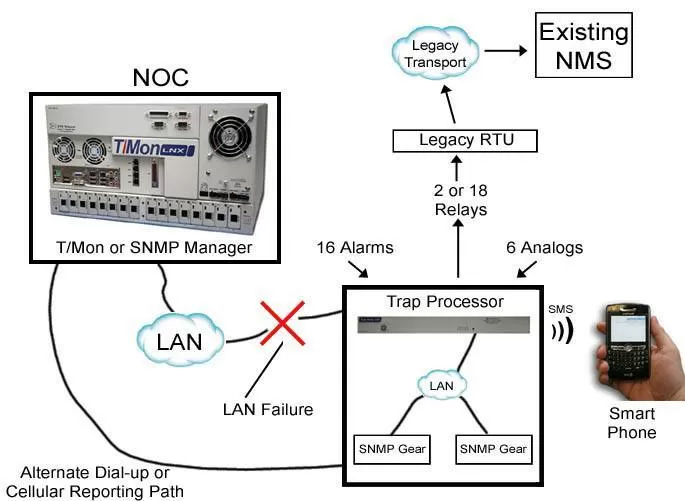Download our free SNMP White Paper. Featuring SNMP Expert Marshall DenHartog.
This guidebook has been created to give you the information you need to successfully implement SNMP-based alarm monitoring in your network.
1-800-693-0351
Have a specific question? Ask our team of expert engineers and get a specific answer!
Sign up for the next DPS Factory Training!

Whether you're new to our equipment or you've used it for years, DPS factory training is the best way to get more from your monitoring.
Reserve Your Seat TodayDo you have unmonitored SNMP equipment in your network? Does this lack of visibility negatively impact you or your operations - or leave you vulnerable to a potential problem?
Your sites may be unmonitored for numerous reasons. Even if LAN is unavailable at the site or if integration to your SNMP manager is too cumbersome, that doesn't mean you can afford to sacrifice visibility over your equipment. With a premium placed on maintaining 100% uptime, you simply can't run the risk of not knowing about a critical problem.
Traditionally, SNMP RTUs collect alarms and report via SNMP traps. They can generate and send SNMP traps to a manager, but they do not receive or interpret them.
The new trap-processing RTUs were designed to add visibility to sites where LAN isn't currently available (whether that be a LAN failure or a lack of practical infrastructure). This line of RTUs monitors local SNMP traffic, then communicates events via Dial-up (TRIP), relay outputs, voice, and other notification methods.

By processing up to 64 (software) uniquely identified. SNMP v1/v2c traps, you can obtain critical coverage over your equipment without having to add costly infrastructure. Each trap can be identified based on several parameters, including IP address, Trap ID, and up to one variable binding (per trap).
As a build option, GSM/GPRS or CDMA SMS reporting can be used where no other transport options are available (or as a backup reporting path to LAN). This is a cost-effective solution for improved alarm coverage over your sites without having to spend the time and money to add other transports.
The new Trap Relay RTUs process up to 64 uniquely defined SNMP traps and converts them to internal alarms for other notification methods. For example, SNMP events can be mapped to a relay, which in turn can be used to provide audible or visual notifications or to interface at a hardware level to the inputs of other monitoring equipment. This makes for an easy and seamless integration into any monitoring equipment you may already have deployed.
In one of this device's several applications, it can operate as a standalone RTU and report alarms to your T/Mon via either LAN or alternative path (Dial-up and cellular) where no other transport options are available (or are temporarily non-functioning).

The new trap processing RTU also comes standard with NetGuardian 216 alarm capacity. This gives you 16 discrete points, 6 analog inputs (4 are user-definable, the remaining 2 are for battery monitoring), and 2 or 18 (build option) control relays. You'll have the monitoring capacity for a small to medium sized site in addition to the trap processing capabilities - giving you ultimate coverage at your sites, without costing you a fortune.
| Features | |
| Discretes: | 16 |
| Ping Targets: | 32 |
| Analogs: | 6 |
| Controls: | 2 or 18 |
| Transport: | 10/100 LAN (Standard), Dial-up (Voice or TRIP options), & Cellular (GSM/GPRS or CDMA options) |
| Notifications: | Voice, Email, SMS, & SNMP |